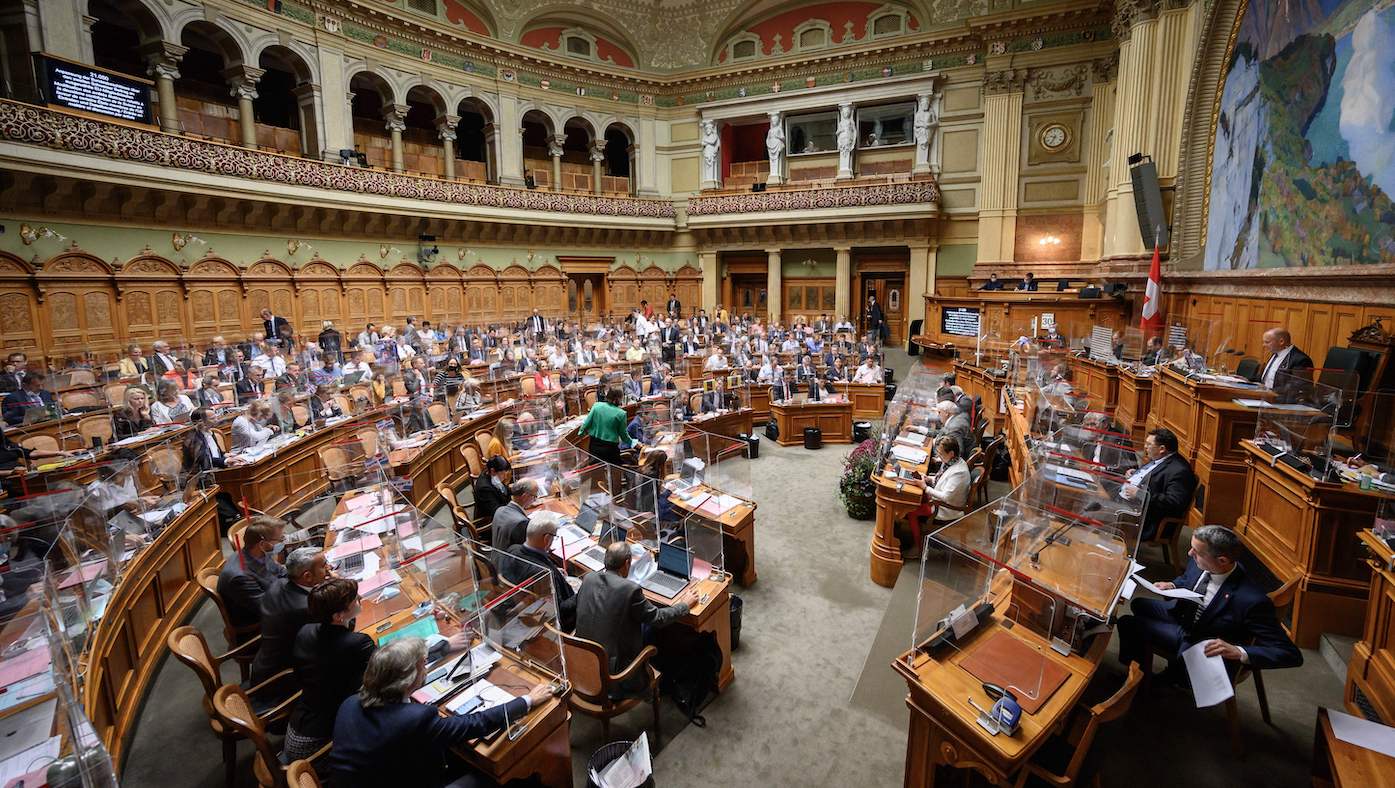Switzerland’s neutrality rethink
The Alpine nation’s historic neutrality is up for debate as it considers allowing its weapons to move to Ukraine

A free daily email with the biggest news stories of the day – and the best features from TheWeek.com
You are now subscribed
Your newsletter sign-up was successful
Switzerland is debating whether it should end centuries of neutrality to allow its weapons to be shipped to Ukraine to aid the country’s fight against Russia.
Currently, Switzerland’s neutrality rules restrict countries that purchase its weapons from exporting them to a third party without prior approval. Germany and Denmark have both made requests to send their Swiss arms to help Ukraine, which have so far been denied.
However, a “pro-Ukraine shift in the public and political mood” is putting “pressure on the government” to allow Swiss weapons to be exported to war zones, said Reuters, but “lawmakers are divided on the issue.”
The Week
Escape your echo chamber. Get the facts behind the news, plus analysis from multiple perspectives.

Sign up for The Week's Free Newsletters
From our morning news briefing to a weekly Good News Newsletter, get the best of The Week delivered directly to your inbox.
From our morning news briefing to a weekly Good News Newsletter, get the best of The Week delivered directly to your inbox.
What is Switzerland’s current position?
Though Swiss neutrality is centuries old, it was enshrined in law in 1907, ensuring it will “not send weapons directly or indirectly to combatants in a war”. It does allow buyers to apply to re-export their weapons, however, “permission is almost always denied”.
In the face of Russia’s invasion of Ukraine, neutrality “looks hopelessly naive, if not worse”, said The Economist. The “security of Europe” is at stake, the magazine added, and neutrality is a “simplistic answer to complex geopolitical questions”.
Switzerland did however make a “significant” move in mirroring EU sanctions against Russia at the start of the war last year, “bowing to public pressure from its citizens and every party in its parliament but the far-right”, said NBC News. The government claimed it maintained its neutrality since it was “not sending military aid or getting involved in the fight itself”.
The Swiss government said on Twitter that its adoption of sanctions was based on “Russia’s gross violation of the most fundamental norms of international law” following the invasion of Ukraine. However, “populists have criticised even this as drifting away from non-alignment”, said The Economist.
A free daily email with the biggest news stories of the day – and the best features from TheWeek.com
Will Switzerland allow its weapons to be sent to Ukraine?
Some Swiss politicians are “keenly aware that the war clock is ticking” as Russia prepares to mount a new offensive in the spring, said Politico. They have come up with “ideas to circumvent the re-export limitations” set in Swiss law, and in the short term aim to introduce a parliamentary initiative that could allow weapons “linked to the Russo-Ukrainian war” to be exported to Ukraine for a limited time.
Whether the initiative, known as Lex Ukraine, passes is “difficult to gauge”, with “some parties having indicated they’ll vote against it”, with a view that it breaks neutrality “if weapons are directly delivered to one country at war but not another”.
Even if the initiative were to pass, it may only allow weapons to be moved to Ukraine in the summer at the earliest, which may be “too late for Kyiv”.
“Increasing numbers of Swiss voters” support allowing its weapons to Ukraine, said Reuters, with a survey by Sotomo revealing that 55% of respondents support re-exporting weapons. “Talking about changing neutrality was a taboo in the past”, Lukas Golder, co-director of pollsters GFS-Bern, told Reuters, suggesting that in previous surveys this figure would have been “less than 25%”.
Despite growing public support and pressure from European neighbours, for now, Switzerland’s “hands are tied by its strict legal rules on armaments exports”, wrote the Financial Times.
Where else is Swiss neutrality being tested?
Switzerland has been walking a “foreign policy tightrope in its relations with China” in recent years, which would not have been improved after five Swiss parliamentarians visited the Taiwan government last week, said Swissinfo.
Bern currently “formally recognises Beijing’s ‘One China’ doctrine that Taiwan is part of the mainland” but provoked “condemnation of the trip” from the Chinese embassy, which said it “interfered in China's domestic policy”. The five lawmakers were accused of “acting in their own political self-interests” by visiting Taipei, the website wrote.
The Swiss visitors said their “government wants to deepen political relations” with Taiwan, reported The Independent. One of the lawmakers, Fabian Molina, said as well as deepening relations, he urged the “tensions between Taiwan and the PRC” to be resolved “peacefully and through dialogue”.
Another of the Swiss visitors, Nicolas Walder, said the visit to Taipei “would not undermine Switzerland’s neutrality” between China and Taiwan, reported the Taipei Times. He added that “China should not confuse visits by lawmakers and the actions taken by the Swiss Federal Council”.
Richard Windsor is a freelance writer for The Week Digital. He began his journalism career writing about politics and sport while studying at the University of Southampton. He then worked across various football publications before specialising in cycling for almost nine years, covering major races including the Tour de France and interviewing some of the sport’s top riders. He led Cycling Weekly’s digital platforms as editor for seven of those years, helping to transform the publication into the UK’s largest cycling website. He now works as a freelance writer, editor and consultant.